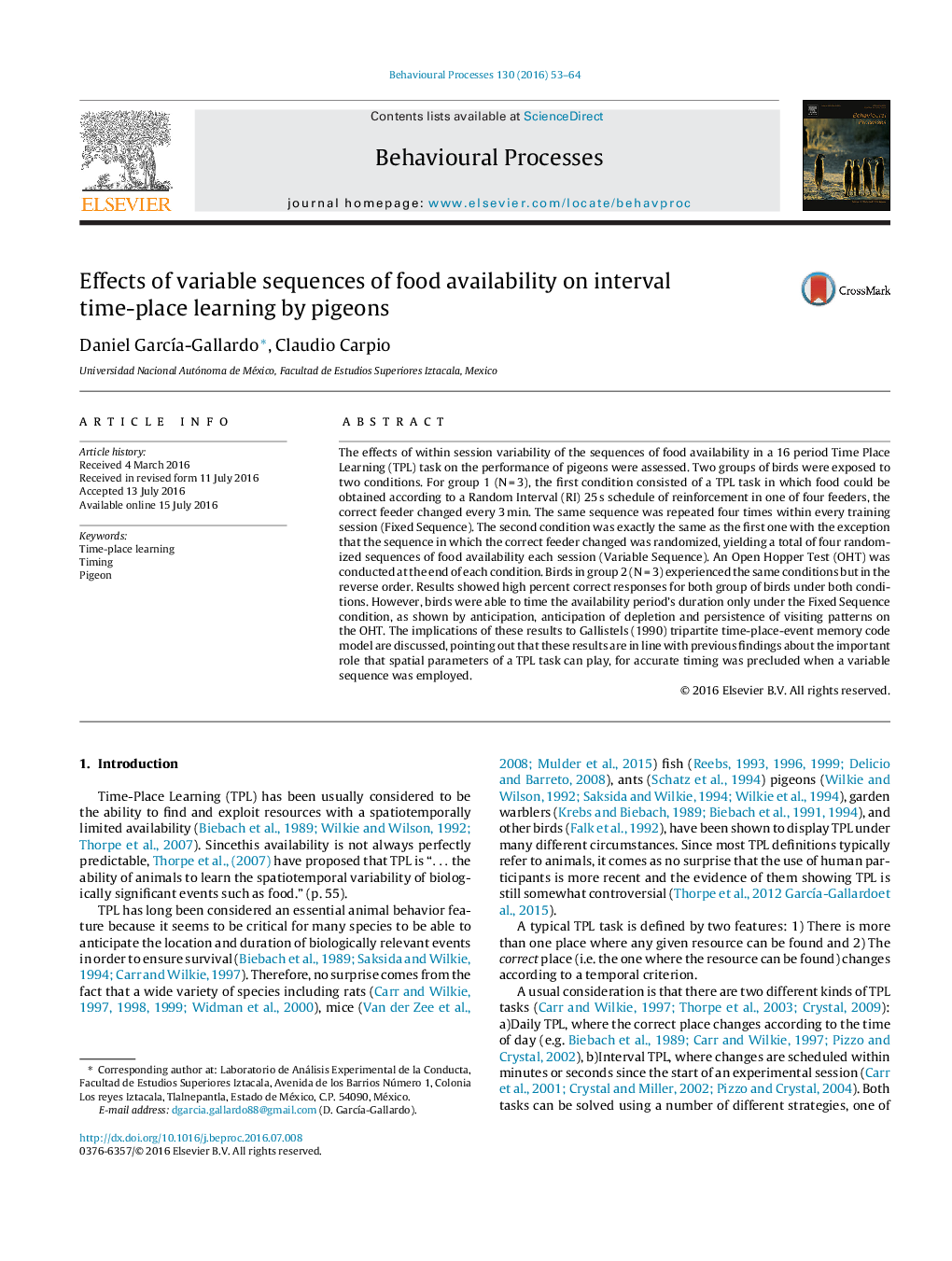| کد مقاله | کد نشریه | سال انتشار | مقاله انگلیسی | نسخه تمام متن |
|---|---|---|---|---|
| 2426383 | 1553150 | 2016 | 12 صفحه PDF | دانلود رایگان |
• We assessed the effects of intra-sessions spatial variability of a Time-Place Learning task with pigeons.
• Food could be obtained according to a Random Interval 25 s Schedule of reinforcement for 3 min one each feeder.
• Each session, location of the correct feeder could follow a fixed sequence repeated four times or randomized sequences.
• Subjects could not time the availability periods under randomized sequences, despite duration of the period remaining constant.
• This is further evidence as to a major role played by the spatial parameters of a TPL task.
The effects of within session variability of the sequences of food availability in a 16 period Time Place Learning (TPL) task on the performance of pigeons were assessed. Two groups of birds were exposed to two conditions. For group 1 (N = 3), the first condition consisted of a TPL task in which food could be obtained according to a Random Interval (RI) 25 s schedule of reinforcement in one of four feeders, the correct feeder changed every 3 min. The same sequence was repeated four times within every training session (Fixed Sequence). The second condition was exactly the same as the first one with the exception that the sequence in which the correct feeder changed was randomized, yielding a total of four randomized sequences of food availability each session (Variable Sequence). An Open Hopper Test (OHT) was conducted at the end of each condition. Birds in group 2 (N = 3) experienced the same conditions but in the reverse order. Results showed high percent correct responses for both group of birds under both conditions. However, birds were able to time the availability period’s duration only under the Fixed Sequence condition, as shown by anticipation, anticipation of depletion and persistence of visiting patterns on the OHT. The implications of these results to Gallistels (1990) tripartite time-place-event memory code model are discussed, pointing out that these results are in line with previous findings about the important role that spatial parameters of a TPL task can play, for accurate timing was precluded when a variable sequence was employed.
Journal: Behavioural Processes - Volume 130, September 2016, Pages 53–64
